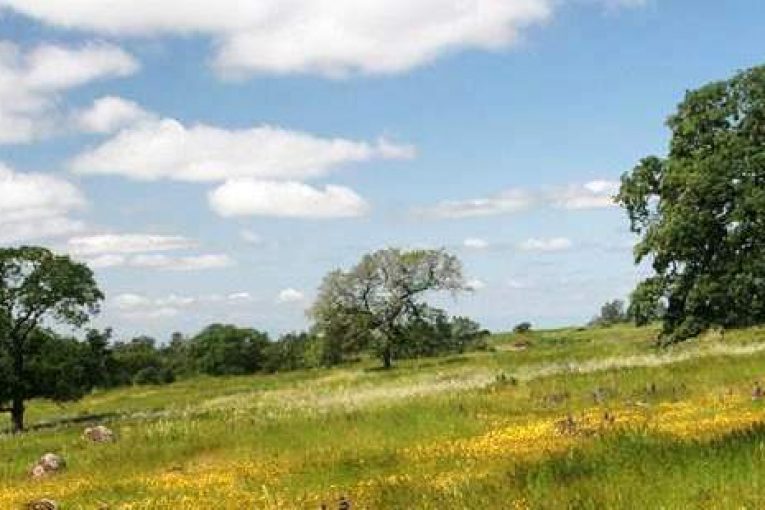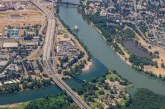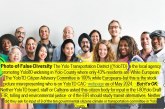

Toxics in the Environment and Other Environmental Issues
As has been our custom for over 20 years, the Sierra Club Yolano Group prepares a wide-ranging questionnaire and presents it to candidates in races of interest to our local membership. The questionnaire for the 2022 Davis City Council race received answers from all 5 candidates in the 2 of the 5 City Council Districts for which an election is held in Novemeber, 2022.
The candidates, listed in alphabetical order by their first name, are:
District 1 (West Davis): – Bapu Viatla, Dan Carson, and Kelsey Fortune
District 4 (East Davis ) – Adam Morrill, Gloria Partida
Questions were asked in the following general categories :
Part 1 – Land Use and Housing Development – Peripheral Development
Part 2— Land Use and Housing Development – Downtown Core and Student Housing
Part 3 – Energy Use and Greenhouse Gas Emissions
Part 4 – Transportation Management
Part 5 – Toxics in the Environment and Other Environmental Issues
Part 6 – Waste Management and Financial Contibutors
Parts 1 through 4 in this series can be viewed by clicking on that article’s title above which is linked to the earlier publication.
This is the 5th in the series of articles and focuses on Toxics in the Environment and Other Environmental Issues and provides candidate responses to the following questions:
Question #1 – Wood Smoke
Small particulate pollution is the leading cause of respiratory disease in the Central Valley. Approximately 50% of winter ambient air particulate pollution is related to residential wood burning and a number of Davis residents have complained of nearest-neighbor wood smoke pollution causing respiratory distress. Davis has implemented a wood smoke ordinance that allows complaints to be filed against wood burning residents if they are producing visible smoke from a non-EPA approved wood burning device. However, the police department and code enforcement) will not respond to complaints during nighttime hours when almost all wood-burning occurs because they do not have enforcement tools or available personnel.
Why or why not do you support this ordinance, and what changes, if any, would you support to it including any enforcement mechanisms?
Question #2 – Pesticide Use Reduction
Several years ago Davis banned the use of pollinator-killing neonicotinoid class of pesticides and phased out the use of the herbicide glyphosate (the active ingredient in Monsanto’s Round-up product). However, the City Council declined to require that only certified organic pesticides be used in the City’s Parks and Open Spaces as recommended by the Natural Resources Commission.
Do you support restricting pesticide use on City properties to only those certified as “organic” and why or why not? If not, do you favor restrictions on where non-organic pesticides or herbicides may be used?
Question #3 – Resiliency
Davis will face threats to infrastructure, operations, and quality of life as climate change impacts become more apparent including extreme heat events and drought, or excessive precipitation.
What would be your strategy for making Davis more resilient in the face of coming issues related to climate change?
Question #4 – Other Environmental Related Issues
What are other environmental or climate change-related issues facing Davis and how would you propose the City address these issues?
Part 6 – Toxics in the Environment and Other Environmental Issues
Question #1 – Wood Smoke
Small particulate pollution is the leading cause of respiratory disease in the Central Valley. Approximately 50% of winter ambient air particulate pollution is related to residential wood burning and a number of Davis residents have complained of nearest-neighbor wood smoke pollution causing respiratory distress. Davis has implemented a wood smoke ordinance that allows complaints to be filed against wood burning residents if they are producing visible smoke from a non-EPA approved wood burning device. However, the police department and code enforcement) will not respond to complaints during nighttime hours when almost all wood-burning occurs because they do not have enforcement tools or available personnel.
Why or why not do you support this ordinance, and what changes, if any, would you support to it including any enforcement mechanisms?
Responses from District 1 Candidates
Bapu Vaitla – I support the wood smoke ordinance. Recent fire seasons have increased public awareness of the dangers of air particulate pollution, especially for children, the elderly, those with respiratory ailments, and those with heart disease. It’s reasonable to see wood burning as a luxury for families in Davis, not a way to meet basic heating needs. This luxury comes at a cost to public health, and Davis residents have the right to request enforcement.
Currently, enforcement consists of a warning on first violation, a $100 fine on 2nd violation, a $200 fine for a 3rd violation, then $500 fines for subsequent violations. I agree with keeping the first violation at a warning, but then immediately ramping up to $500 fines. There is no reason why a resident should be knowingly violating the law and endangering the health of others without penalty.
I respect the capacity constraints that prevent nighttime code enforcement. I suggest that all reported nighttime violations should be logged and a code enforcement officer dispatched the following day to investigate the report. If multiple neighbors corroborate the previous night’s violation, then the penalty should be imposed (after an initial warning).
Dan Carson – Education of city residents of the potential harm that wood smoke can cause others is a potentially useful tool that is available to our city to reduce the problem. We should also continue to pursue funding and subsidies via our local air resources management board to incentive residents to remove or replace conventional fireplaces with substitute devices that do not produce wood smoke. As a member of the city’s legislative subcommittee, I intend to continue to look for such funding opportunities.
Kelsey Fortune – First, I would like to address unenforced ordinances. We need to either enforce these or create an alternative structure which will be enforceable. Having any ordinances that are not enforced undermines the legitimacy of governing bodies.
Particulates are hazardous, and we should limit them unless necessary. Wood smoke and leaf blowers are common causes of elevated levels of PM2.5, PM10, and well as SOx and NOx. My initial thought when it comes to these activities is to institute a permitting process that comes with an appropriate fee to those who feel these are necessary for them. This would include limited the time when use is allowed. Large fines would be incurred by those who do not obtain a permit, and by those emitting these pollutants outside the use times. These would always be strictly enforced.
Pay-to-play permitting will help fund the enforcement of these policies.
Responses from District 4 Candidates
Adam Morrill – I support the idea of the ordinance, but like all ordinances, for them to be effective they must be enforced. It is unrealistic for the police department to respond to these types of calls on a regular basis. Greater public outreach would be a good first step, especially when “no burn days” are issued by the Air District. I would also suggest that enforcement should focus on those particular no burn days where atmospheric conditions concentrate rather than disperse particulates. Enforcement should be similar to other code enforcement, however it would require an employee to be working after normal business hours to handle these types of calls and that is not the role of police officers.
Gloria Partida – Enforcement is a challenge. We already have other challenges with workload in our police department. Enforcement of wood smoke is not the best use of that resource. I do believe that having woodburning fireplaces phased out should be encouraged and supported with incentives and ordinances.
Question #2 – Pesticide Use Reduction
Several years ago Davis banned the use of pollinator-killing neonicotinoid class of pesticides and phased out the use of the herbicide glyphosate (the active ingredient in Monsanto’s Round-up product). However, the City Council declined to require that only certified organic pesticides be used in the City’s Parks and Open Spaces as recommended by the Natural Resources Commission.
Do you support restricting pesticide use on City properties to only those certified as “organic” and why or why not? If not, do you favor restrictions on where non-organic pesticides or herbicides may be used?
Responses from District 1 Candidates
Bapu Vaitla – Pollinator-killing pesticides should not be used. Effective organic pesticides exist to manage our common insect pests, and biocontrol methods are also effective.
Glyphosate is a more difficult issue. The EPA has continued to find that glyphosate poses no significant risks to human or pet health (https://www.fda.gov/food/pesticides/questions-and-answers-glyphosate). Although one international agency has found that glyphosate may be a carcinogen, others—including the UN agencies tasked with food safety and public health—have reached the opposite conclusion.
The precautionary principle applies in situations like this. If a compound may possibly be a carcinogen, it’s wise to seek effective alternatives, i.e., certified organic herbicides. The first step is thus to consult with weed scientists about which organic herbicides would be effective in managing the specific weeds that exist in the City’s parks and open spaces. The City, including the Parks and Community Services Department, continues to be understaffed, and we cannot reasonably resort to mechanical weed management. In certain parcels, uncontrolled weeds represent a fire hazard.
If no effective organic herbicides exist for our context, we should reconsider the glyphosate question. Instead of prioritizing the findings of just one agency, we should survey the entire body of evidence, prioritizing the guidance of the EPA and UN agencies.
Dan Carson – I supported the ban on Round-Up. I welcome the receipt of more information from the Sierra Club and NRC on what is described as “certified organic pesticides” and how the implementation of such a change would affect management of city parks and recreation and open space lands whose use of is great benefit to the public.
As council has discussed in the past, I believe that some pre-emergent pesticides are needed in areas like road medians and remote infrastructure locations like stormwater drains because of the extraordinary and costly emergence of weed problems our city is facing due in part to weather and other factors. However, I do not favor their use in areas such as public parks that would pose a potential risk for children and pets and any use should occur in keeping with a well thought-out integrated pest management approach Part of the solution here is for the city to try again to overcome difficulties it has experienced in hiring the experts needed to fully implement the IMP policies it adopted in 2017. Several efforts to hire such experts have failed in recent years but we must try again. In the interim, city staff is implementing IMP through collaborative efforts by multiple staff members.
Kelsey Fortune – One of the main purposes of open spaces and parks is to be a safe place for native plants and animals, as well as for the public. The City Council needs to listen to the community and figure out what it takes to make the public’s recommendations work financially. The public’s recommendations should be the starting point for City Council decisions. The NRC has more collective knowledge on this than the Council, and I would suggest we reconsider this matter as soon as possible.
Responses from District 4 Candidates
Adam Morrill – I oppose the use of pesticides as a first line tool. The city funded an Integrated Pest Management position, but has not yet filled it after several years. The city needs someone who is knowledgeable of IPM best practices to manage this program. The city should absolutely ban any pesticide that has been documented to have serious detrimental effects on non-target species and water quality. However, I do not support utilizing only “organic” labelled pesticides. What I am for is a truly integrated pest management approach. This will deliver the best outcome and minimize both environmental and monetary costs.
Gloria Partida – I support pesticide reduction and use of organic pestisides. I also would ask that we not inadvertently cause potential harm to our tree canopy if there is not an effective way to manage a particular pest. We have seen the effect of weeds since the ending of roundup with out the proper support needed to maintain our parks. This creates more weeds in peoples yards who then use roundup. All effects should be thoroughly thought through.
Question #3 – Resiliency
Davis will face threats to infrastructure, operations, and quality of life as climate change impacts become more apparent including extreme heat events and drought, or excessive precipitation.
What would be your strategy for making Davis more resilient in the face of coming issues related to climate change?
Responses from District 1 Candidates
Bapu Vaitla – Our planet is in a state of climate emergency, and we can no longer take half-hearted measures. The City of Davis is currently formulating an ambitious Climate Action and Adaptation Plan (CAAP) to achieve carbon neutrality by 2040. We must prioritize the ideas in the plan that specifically address the question of resilience.
For example, the ongoing drought has illustrated the importance of water conservation. The City can offer utility bill rebates and technical assistance to property owners willing to convert lawns to drought-tolerant landscapes, upgrade to drip irrigation systems, install smart controllers and rain barrels, and implement graywater systems. Incentivizing new developments to build rainwater catchment systems to increase infiltration and minimize runoff would also impactful.
In addition, micro-grids distributed throughout the City can increase our local renewable energy generation capacity while maintaining resilience in the face of power grid failure.
We can use green spaces to reduce heat island effects. As climate change progresses, average temperatures will increase. The effect will be exacerbated in urban areas, where building materials and roads trap heat. Davis can lean into its long tradition of protecting open space, parks, and urban forests to create cool green pockets across the City.
Many of the ideas in the CAAP will require funding support. A Climate Resilience Fund, modeled on the Housing Trust Fund and financed by modest carbon taxes linked to home and car fossil fuel use—with exemptions for low-income families—would ensure that the CAAP becomes a concrete reality, not just an aspirational vision.
Dan Carson – One important climate adaptation proposal that surfaced during our CAAP outreach process, and that is reflected in our draft CAAP update for which I voted on council, is to establish a resiliency hub at a city facility, presumably powered by solar and backed up by battery storage, as a place to assist persons in our community who need assistance in extreme heat events, power cutoffs due to wildfires, and other disruptive events. A regional study, in which the City of Davis was a partner, specifically predicts that extreme heat events are going to become much more frequent in the coming decades. Grant funding may be available for planning and implementing such community projects, so the council directed our staff to begin to pursue such funding options. I supported this council action.
Kelsey Fortune – The most important thing we can do is layout our responses to various increasingly likely events. In situations of heat and drought, there are many policies that can be set up to automatically kick in to reduce our use of electricity and water. We should create these proactively, so we don’t have to waste time when these situations are upon us.
As a city, we can also invest in energy storage as well as EV2Grid infrastructure to utilize the incredible amount of electricity storage that already exists in Davis in the form of electric vehicles.
In addition, we must create resilience centers across the city, centers that can disconnect from the grid and run on their own solar and storage systems. We should begin with grocery stores so that we do not see the food waste we have seen with previous blackouts. I would suggest we then work with our local faith communities to outfit places of worship as resilience centers.
I would begin by formalizing a climate commission. We need to act fast on this.
Responses from District 4 Candidates
Adam Morrill – First, the city needs to take a proactive approach to repairing and rehabilitating our current infrastructure. Much of our infrastructure is crumbling and failing from years of neglect and poor planning. Additionally, we need to investigate the feasibility of innovative approaches to managing our stormwater to prevent flooding. Also, we need to do what we can to reduce our urban heat island impacts. We need more shaded parking lots (ideally with a combination of PV and trees). We also need to properly manage our urban forest so that it continues to provide valuable shade and carbon uptake. We also need to make sure that we are planting trees that are resilient and can withstand climate change impacts. The city also needs to look into how it might be able to utilize grey water, particularly in summer months when our surface water allotment is less and we have to rely more on our impacted groundwater.
Gloria Partida – We must budget for warming and cooling centers and require new structures to be resilient. We should partner with the state and county to help our residents with weatherization of their homes. We should make sure our workers that must work outside are properly supported and trained in heat related tactics.
Question #4 – Other Environmental Related Issues
What are other environmental or climate change-related issues facing Davis and how would you propose the City address these issues?
Responses from District 1 Candidates
Bapu Vaitla – We must transition to an entirely fossil fuel-free economy. Clean power supply is an important part of this transition.
In 2018, the communities of Yolo County launched Valley Clean Energy (VCE), our local non-profit electricity provider that makes renewable energy available to the grid and delivers it to consumers. A significant percentage of VCE’s energy is already renewable and carbon-free, but the City can take even more powerful steps towards total decarbonization by building community solar arrays and batteries, as well as offering incentives to improve energy efficiency and enhance electrification in residential and commercial buildings.
Dan Carson – In my roles as a board member and chair of Valley Clean Energy (VCE), I have supported the approval of long-term contracts that will shift our local energy system to 85% renewable power by 2024. If reelected I promise to work collaboratively with my VCE board colleagues to accelerate our transition to 100% renewable energy ahead of our current 2030 target. In addition, VCE must grapple with important power capacity and energy conservation efforts needed if our clean power agency is going to help the City of Davis and other VCE partners (Woodland, Winters and unincorporated Yolo County) to decarbonize our transportation and building systems. We are already examining how VCE can meet those future needs and move our city and our region closer to carbon neutrality.
Kelsey Fortune – Over two thirds of our emissions as a community are due to transportation. I believe we have not done enough to address getting people out of their private vehicles.
Responses from District 4 Candidates
Adam Morrill – One step to reduce car trips and increase residents’ sense of ownership of our parks is to relocate the city gardens, where feasible, to our neighborhood parks. This would enable more people to utilize this resource while also bringing it closer to them.
Other things related to transportation and GHG emissions would be reducing traffic on I-80 through Davis. Idling cars contribute excessive amounts of pollution in a localized area. We need to find a solution to address this. Additionally, I would lobby for light rail service from Davis to downtown Sacramento. While Amtrak is a good service for those commuting to the Bay Area, it is not for those going to Sacramento. Light rail is also cleaner than buses or conventional trains.
The city also needs to work with local non-profits to develop resiliency hubs within our communities so that neighbors can work together to address environmental issues at the local level.
Gloria Partida – Water shortage is going to be an ongoing issue. I support more incentives for grey water systems and water recovery systems. Maintaining our tree canopy and transitioning it to a canopy that is more well adapted to a changing climate will be important. Education and staying ahead of best practices must be a priority.
The Sierra Club Yolano Group is a local Sierra Club group comprising members in all of Yolo and small parts of Solano and Colusa Counties. We can be contacted at sierraclubyolanogroup@gmail.com.





